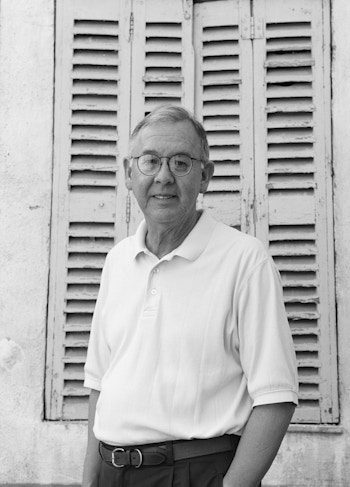
James Phillip Welch, Jr., a founding author of the Native American Renaissance, was born in Browning, Montana. His father, a welder and rancher, was a member of the Blackfeet tribe, while his mother, a stenographer for the Bureau of Indian Affairs, was a member of the A’aninin (Gros Ventre). Welch was raised and educated on the Blackfeet and Fort Belknap reservations for much of his youth, where he was embedded in the Indigenous community, religion, and traditions that would deeply influence his later writing. He attended high school in Minneapolis and wrote poetry privately as a student there, often imitating the classic poems his teacher taught each week in class.
Welch failed out of college twice and worked as a Forest Service firefighter, a laborer, and an Upward Bound counselor before enrolling at the University of Montana. He took a short story class and enjoyed it so much that he applied for the school’s new creative writing MFA. In that program, he studied under Richard Hugo, who encouraged him to write about the Native American culture he originated from. Welch and Hugo soon became close. On a trip with J. D. Reed, the three challenged each other to write a poem about a bar in Dixon, Montana, and submitted the set of poems that emerged to The New Yorker. The magazine accepted the whole set, and suddenly Welch was a published poet. After his graduation from the University of Montana, he began writing more seriously. He married comparative literature professor Lois Monk in 1968; during her sabbaticals, the couple lived abroad, where Welch could focus on his writing for long periods.
Welch’s first and only poetry collection, Riding the Earthboy 40, was published in 1971. The collection is deeply informed by the landscapes of Montana and Welch’s own childhood experiences on reservations. His first work of fiction, Winter in the Blood (1974), began as a long poem about Montana and evolved into a novel. A surprise hit with a front-page New York Times review, it was later adapted into a film of the same name. After this point, Welch primarily wrote fiction, publishing The Death of Jim Loney (1979), Fools Crow (1986), The Indian Lawyer (1990), and The Heartsong of Charging Elk (2000) over the course of his career. Fools Crow, set in the rapidly changing world of the Blackfeet tribe in the 1870s, brought him even more acclaim, winning the American Book Award, the Los Angeles Times Book Prize, and the Pacific Northwest Book Award. Welch also collaborated with filmmaker Paul Stekler on the PBS documentary Last Stand at Little Bighorn (1992), then drew from the project for his first nonfiction work, Killing Custer: The Battle of the Little Bighorn and the Fate of the Plains Indians (1994).
Welch’s many awards and honors include a Lifetime Achievement Award from the Native Writers Circle of the Americas, the Chevalier de l'ordre des Arts et des Lettres from the French Cultural Ministry, the Native American Literature Prize, the John Dos Passos Prize for Literature, and the Western Literature Association's Distinguished Achievement Award. The holder of honorary doctorates from Rocky Mountain College and the University of Montana, he also served on the board of directors of the D'Arcy McNickle Center of Chicago’s Newberry Library. His work has been printed in nine languages, and his papers are held by Yale University.
Welch spoke and taught widely over his career, including at Cornell University and the University of Washington, where he held the Theodore Roethke Chair. During the 1980s, he served as Vice Chairman of the Montana State Board of Pardons. In 2003, Welch died of a pulmonary embolism at his home in Missoula, Montana. His legacy continues with tributes such as 2022’s James Welch Native Lit Festival and the Poetry Northwest’s James Welch Prize for Indigenous Poets, as well as his broad influence as one of the first major Native fiction writers in the United States.
-
More James Welch
Video: Joy Harjo reads James Welch's poem "The Man From Washington" for PBS NewsHour
Text: Two poems by Welch in the Seattle Times
Image/Text: See 2016's Google Doodle featuring Welch
-
Photo by Ulf Andersen/Getty Images.